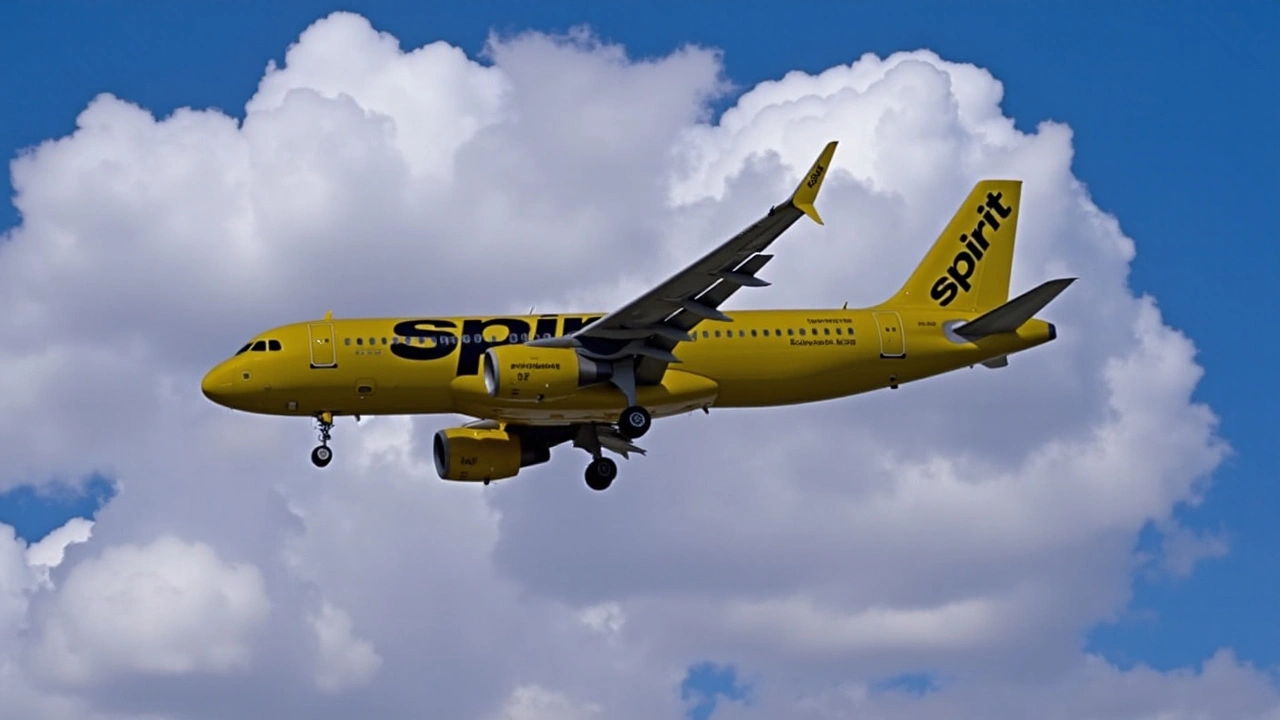Spirit Airlines Flight Diverted After Gunfire Incident in Haiti
Spirit Airlines Flight Faces Gunfire in Haiti
In a disconcerting turn of events, a Spirit Airlines Airbus A320neo found itself under attack while making its descent into Touissant L'Overture Airport in Port-au-Prince, Haiti. The alarming incident unfolded on November 11, 2024, during what was anticipated to be a routine landing. However, this act of external aggression forced the crew to make rapid operational decisions, prioritizing the safety of all passengers and crew members on board. The swift and precise response of the pilots ultimately resulted in a successful diversion to Cibao International Airport in the Dominican Republic, sparing the passengers from potential harm.
Proactive Measures and Emergency Protocols
The proactive measures taken by the Spirit Airlines team exemplify an unwavering commitment to aviation safety. The flight's immediate diversion underscored the impeccable training and standard operating procedures that pilots and airline crew are equipped with to handle unforeseen emergencies. Upon landing at Cibao International Airport, all passengers and crew members were reported safe, a testament to the professionalism shown under pressure.
Impact on Aviation Safety Regulations
This incident was not isolated. It comes during a period fraught with heightened security concerns in the region. Consequently, the Federal Aviation Administration (FAA) acted decisively, instituting a ban on all U.S.-based airlines from flying in and out of Haiti. This regulation was born out of confirmed reports detailing multiple instances where aircraft were subjected to gunfire while operating near Touissant L'Overture Airport. Such measures reflect the FAA's mandate to ensure the utmost safety in the aviation industry, regularly assessing threats and adapting guidelines to emerging circumstances.
Historical Precedent and Similar Incidents
This is not the first time aircraft have faced threats from ground-level hostility. History has documented several similar episodes, distinguishing how volatile situations on land pose real threats to aviation operations. The decisions made to avert further danger and ensure the security of airline operations are reflective of lessons learned from past incidents. Airlines typically assess flight paths and collaborate with international agencies to determine safe zones of operation and avoid potential danger areas. With evolving geopolitical tensions, such adaptability is critical to minimizing risks associated with international air travel.
Effects on Airline Operations
The immediate flight ban imposed by the FAA has a direct consequence on airline operations, affecting scheduling, logistics, and passenger travel plans. Airlines operating routes involving Haiti must now reroute flights, potentially leading to delays and cancellations. The aviation industry is inherently connected globally; disruptions in one geographic region have ripple effects on interconnected flight networks. The importance of contingency planning by airlines becomes ever more apparent in the face of such disruptions, ensuring that passenger safety always remains at the forefront.
Broader Implications for Haiti
The incident further complicates Haiti's position in the aviation travel industry, adding layers to the country's socio-political challenges. The grounding of flights impacts not only tourism and economic activities but also the country's attempts to portray a secure international image. The aviation halt underscores Haiti's need to address its security concerns more comprehensively. For global peacekeeping and aviation security organizations, these events may necessitate renewed diplomatic and tactical efforts to stabilize regional safety, thus potentially contributing to a more conducive environment for aviation operations.
Future Prospects for Regional Air Travel
As the FAA’s directive holds firm, attention will likely turn to negotiations and security assessments as authorities seek solutions that could enable safe and reliable operations to resume in Haiti. Regional cooperation, leveraging resources, and coordinated intelligence will be central to establishing renewed confidence in Haiti’s airspaces. Airline companies, aviation regulatory bodies, and international partners will need to collectively assess and understand the factors causing these disruptions and work towards long-term resolutions. Open communication and strategic cooperation may be the key to revitalizing safe aviation travel in these affected regions.
